(Credits: Far Out / Universal Pictures / Warner Bros. Pictures)
In his 55-year-long career in the movies, Dennis Hopper brought as much of his own off-kilter personality into his work as anybody. Getting off the ground at just 18, his long life was watched by global audiences who saw him try and sometimes fail to find the correct vent for his artistic energies.
He was just as large a life figure outside of his roles as he was in them – just see the time that he blew himself up by attaching dynamite to a chair on a speedway in Austin, Texas, or when he almost took over a Peruvian town following one particularly despicable night out – but it’s his work on the screen and behind the camera that will live on.
We can all indulge in Hopper’s hedonism and the wild stories he provides. But, in truth, like any artist, these tales of debauchery wouldn’t be worth nearly as much if he didn’t also have a body of work worth diving into. A crazy personal life is certainly tantalising, but it is his creative work that provides the met to get your teeth stuck in to.
Here are the six movies that most accurately mark Hopper’s path through his long life and career, in chronological order.
The six movies that made Dennis Hopper an icon:
Rebel Without a Cause (Nicholas Ray, 1955)
An 18-year-old Dennis Hopper made his big-screen debut in this teen angst classic in a blink-and-you’ll-miss-it turn as a greaser in the gang of youths threatening James Dean. He can be seen lurking on the roof of a car in the famous Griffith Observatory confrontation scene.
This was the movie that made James Dean an icon right after his untimely death in a car collision in central California. His career of just a few years proved iconic enough for him to be remembered as one of the great faces of a generation all the way up to the present day, some 70 years later.
But it was Hopper who was given the chance to hang around and become the poster child of his generation as it made its way through the tumultuous history of the 1960s and 1970s. His debut in such a zeitgeist-defining film is par for the course, setting the table for an actor who somehow always managed to be in the right place and at the right time to witness cultural history in the making.
And with the doors to Hollywood now open to a young Hopper, he spent the next decade appearing in his fair share of Westerns and genre films, including Gunfight at the OK Corral, From Hell to Texas and Night Tide.
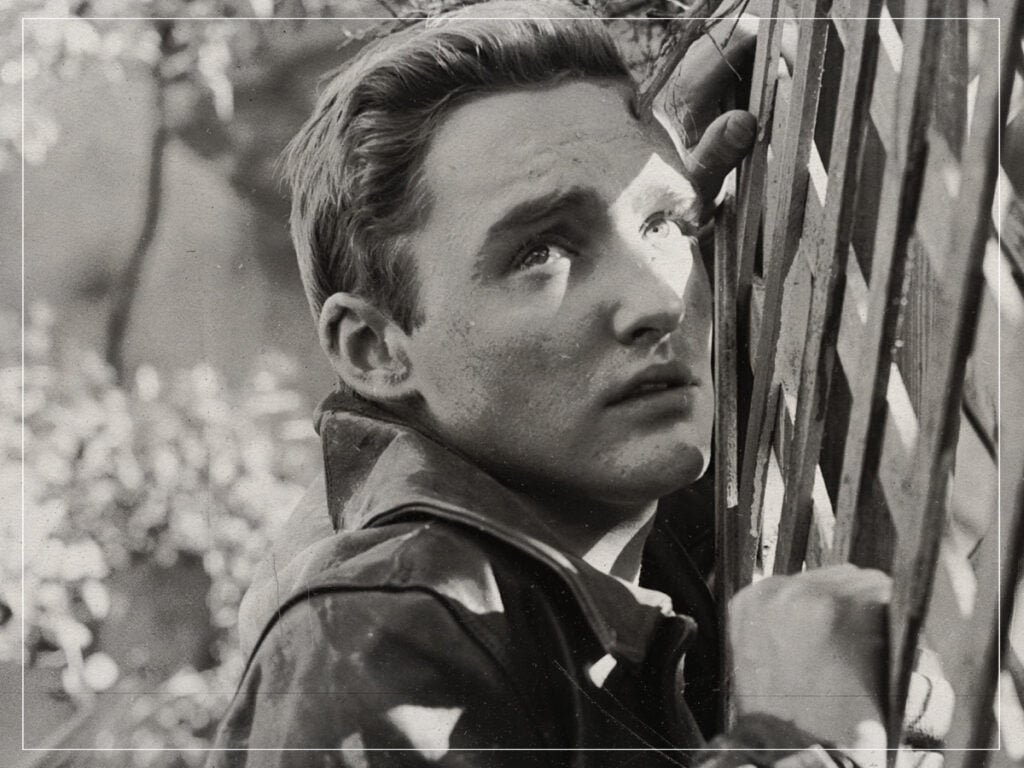
Easy Rider (Dennis Hopper, 1969)
As the free-loving and free-thinking pretensions of the 1960s descended in earnest, Hopper became a guiding star for the darker, riskier and druggier side of the exploding hippy subculture with his thunderous entry into directorial work.
Easy Rider is one of those films that define a generation, and with credits as director and a lead character, Hopper became the face of a generation nearly overnight.
The practise run, perhaps, was The Trip – a drugsploitation movie directed by prolific schlock merchant Roger Corman that follows Peter Fonda as he wanders the Hollywood Hills after a heroic dose of LSD. The film was written by Jack Nicholson and featured Hopper, who also took a turn in the director’s chair for the second unit. In many ways, this film paved the way for Easy Rider. And just a year later, Fonda and Hopper were revving their engines and heading for New Orleans in this loosely told modern American odyssey.
The film’s gonzo shooting style kept costs minimal, and its countercultural popularity made it something of a craze. The picture’s profitability allowed Hopper to push the boat out even further, creating the next entry—a film so ambitious that it saw Hopper essentially exiled from Hollywood for over a decade.
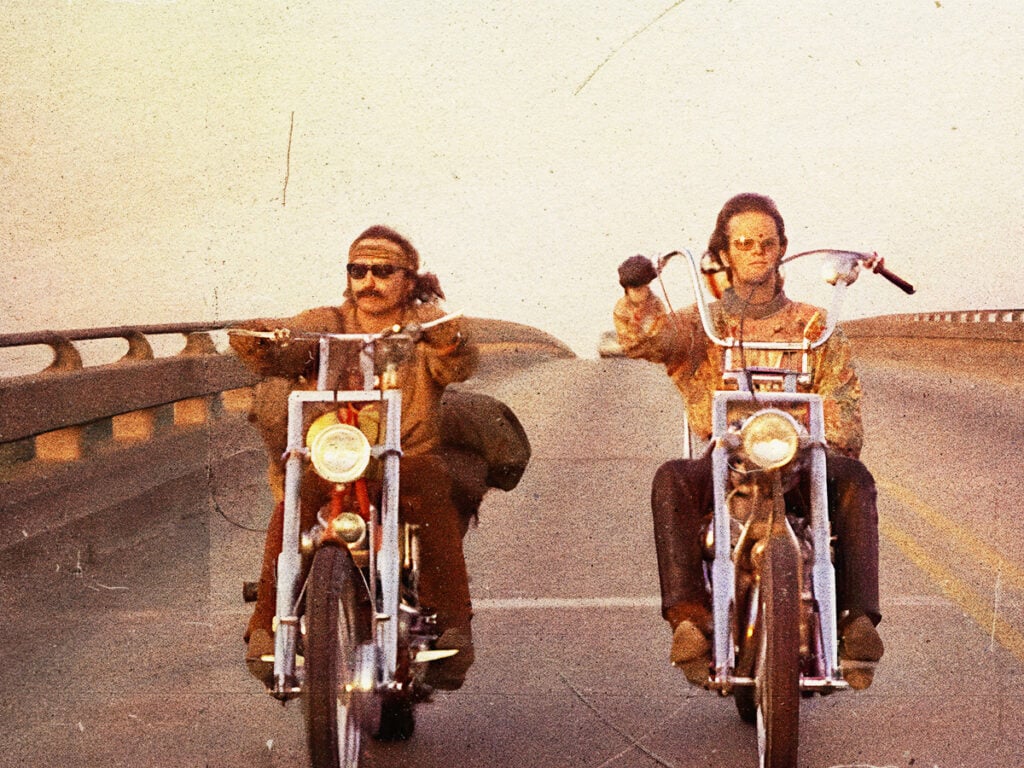
The Last Movie (Dennis Hopper, 1971)
On the back of Easy Rider’s unprecedented success, Hopper was given $1million and carte blanche to put his wildest dreams to film. What followed was a critical and financial car crash.
Hopper took the money and most of his friends down to Cusco, Peru, where he embarked on filming a screenplay by Rebel Without a Cause writer Stewart Stern about native Peruvians who are unsure of where reality ends and fantasy begins in film.
In the thick of a drug habit and surrounded by his entourage in the mystical valleys of the Andes, Hopper spent most of the time running the camera on long improvised scenes that left the original screenplay untouched.
Maybe it was the drugs or the altitude sickness, but what he came back with and then spent almost a year editing disappointed the studio and saw Hopper himself removed from the director’s chair for over a decade.
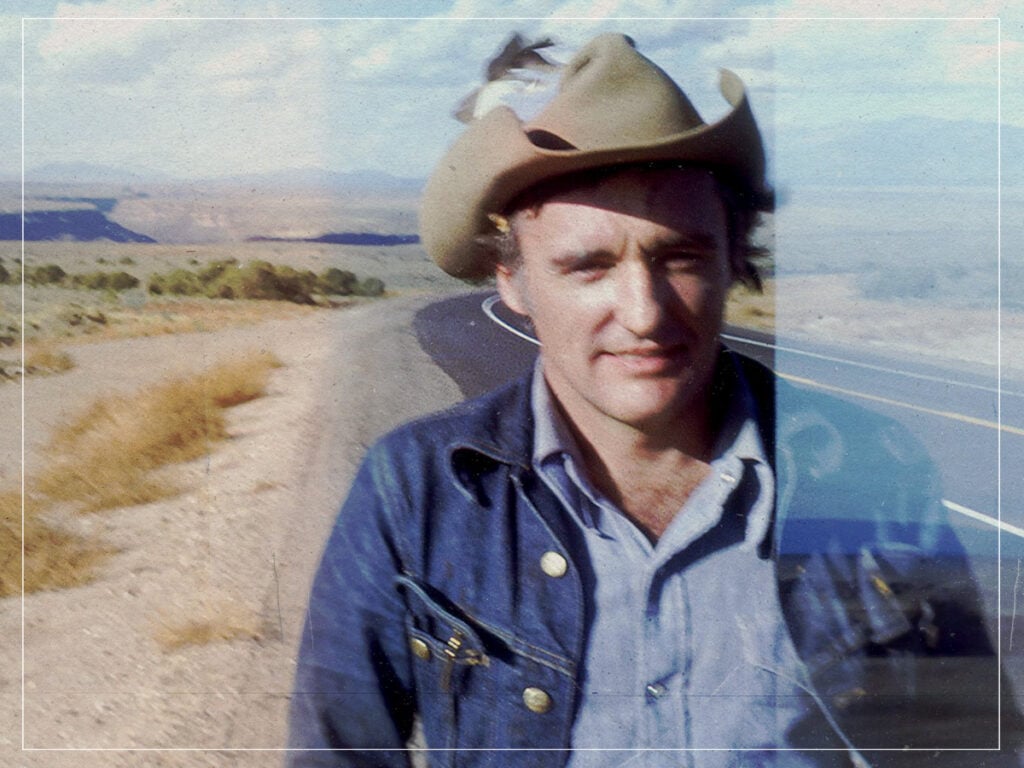
Apocalypse Now (Francis Ford Coppola, 1979)
Hopper spent most of the 1970s appearing in lower-profile films before Francis Ford Coppola plucked him from semi-obscurity for one of his most well-remembered roles.
Hopper, himself a keen photographer, played a crazed photojournalist who has fallen under the spell of self-crowned God of the upper Mekong, General Kurtz (played from the shadows by a steadily inflating Marlon Brando).
The making of Apocalypse Now is a well-chronicled mess, with typhoons, grave robbers, heart attacks and crumbling interpersonal relationships and finances, making the war movie its own kind of deadly battle. Constant livewire Hopper did nothing to calm things, nearly coming to blows with one of his most famous co-stars.
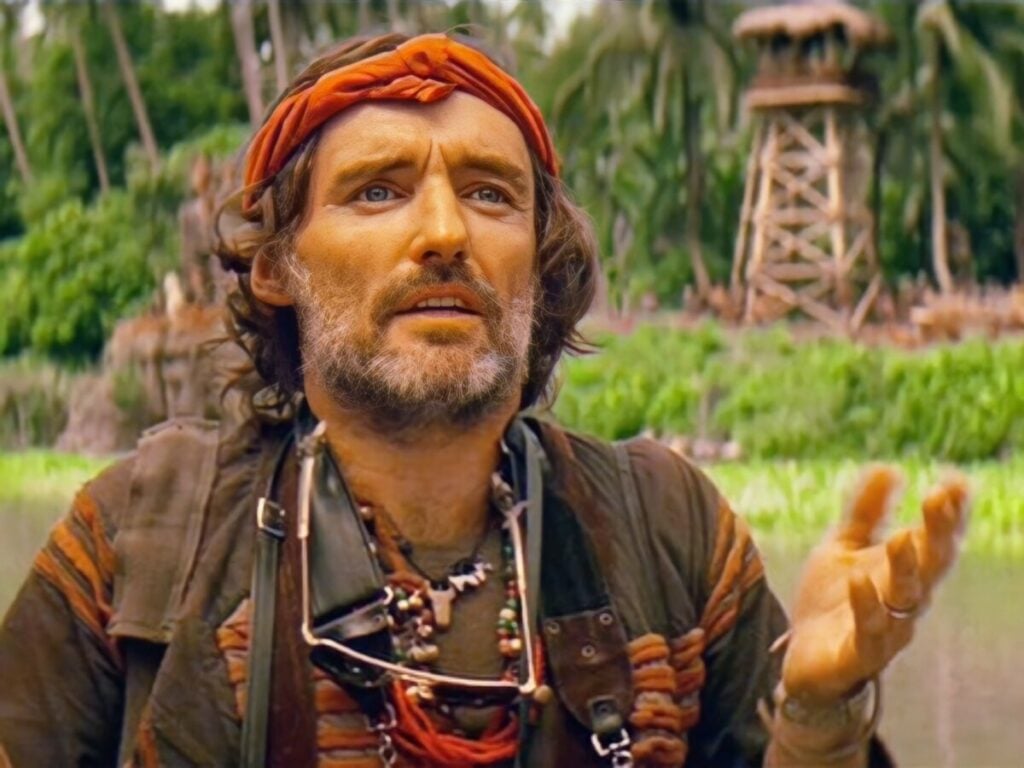
Blue Velvet (David Lynch
Back in the high life again, Hopper appeared in his rescuer’s sequel to The Outsiders, appearing as the father in Rumble Fish. From here, he entered a period of playing manic oddballs, earning a name as one of the zaniest character actors in Hollywood.
Highlights include his chainsaw-duelling Texas Ranger in The Texas Chainsaw Massacre Part Two and sex doll-romancing Feck in River’s Edge.
However, his most iconic role from this period was that of the sociopathic Frank Booth in David Lynch’s 1986 masterpiece, Blue Velvet. The sadistic, gas-huffing, Orbison-loving Booth is an apparition that seems to have crept its way from Hell rather than any kind of criminal underworld. It’s the kind of criminal character that is so removed from humanity as to seem supernatural – a trope seen often enough through the years with examples like No Country for Old Men’s Anton Chigurh, or David Thewlis’ delightfully revolting VM Varga in the Fargo television series. But it’s Hopper who really set the trope with his endlessly disquieting portrayal of a madman.
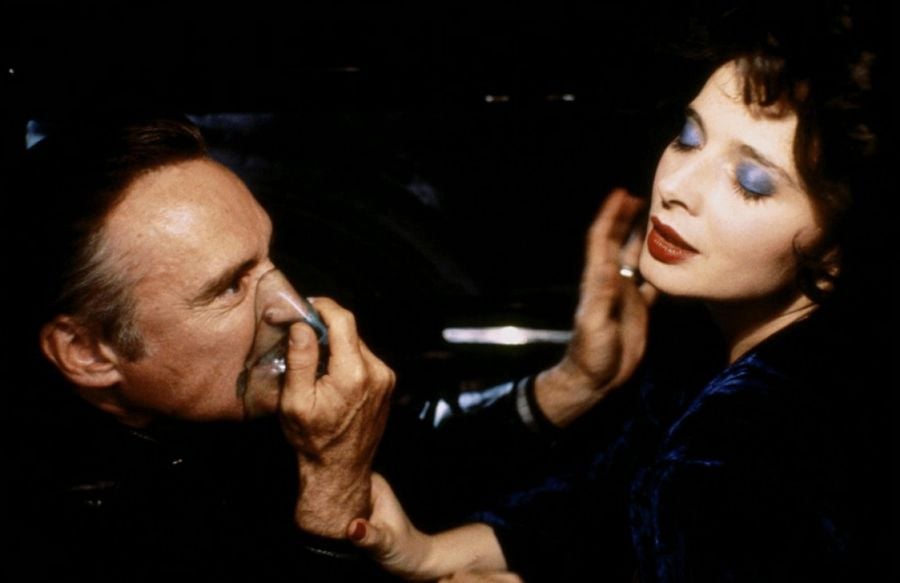
Waterworld (Kevin Reynolds, 1995)
Perhaps his proficiency at playing the villainous Frank Booth set the trajectory for the rest of Hopper’s years. Aside from some (slightly) more sympathetic characters like Christian Slater’s doomed dad in True Romance, Hopper made a trade of playing the heel.
And like everything in his life, he didn’t go at it half-heartedly. There’s a list of campy bad-guy performances that could each go here and represent this final period in Hopper’s life before his death of prostate cancer in 2010.
There’s his disgruntled bomb squad officer in Speed, who sneers down the phone at a flustered Keanu Reeves. There’s his Dick Cheney impression as the corrupt leader of a human refuge in the zombie apocalypse of Land of the Dead. And who could forget the freakish King of the Koopas in Super Mario Bros, which saw Hopper don corn-rows and a long reptilian tongue to square off against the Brooklyn plumbers.
But the codifying cheesy Dennis Hopper villain has to be Deacon in the oft-ridiculed Kevin Costner epic Waterworld. As the leader of a gang of cigarette-puffing marine raiders called the Smokers, Hopper chews the scenery with iron teeth.
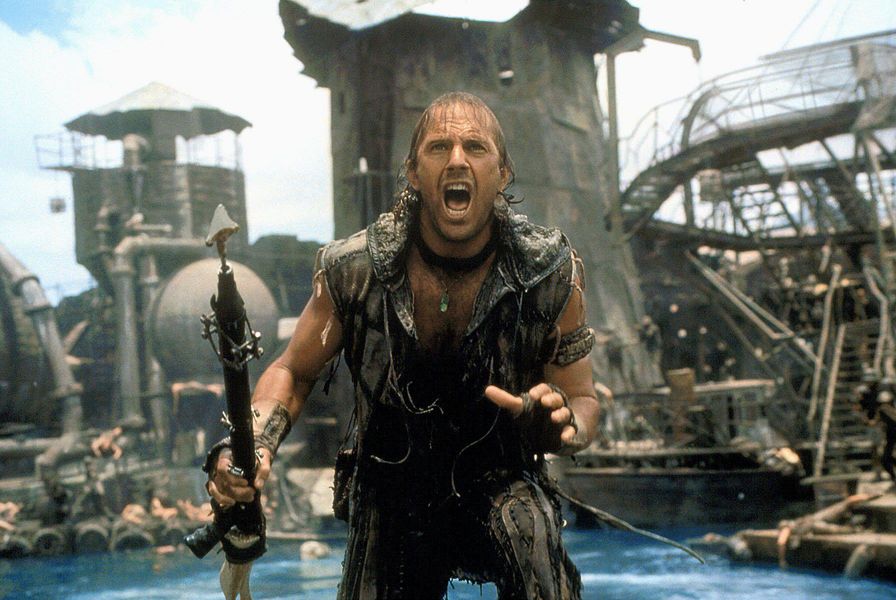
Related Topics
Subscribe To The Far Out Newsletter
This post was originally published on here






